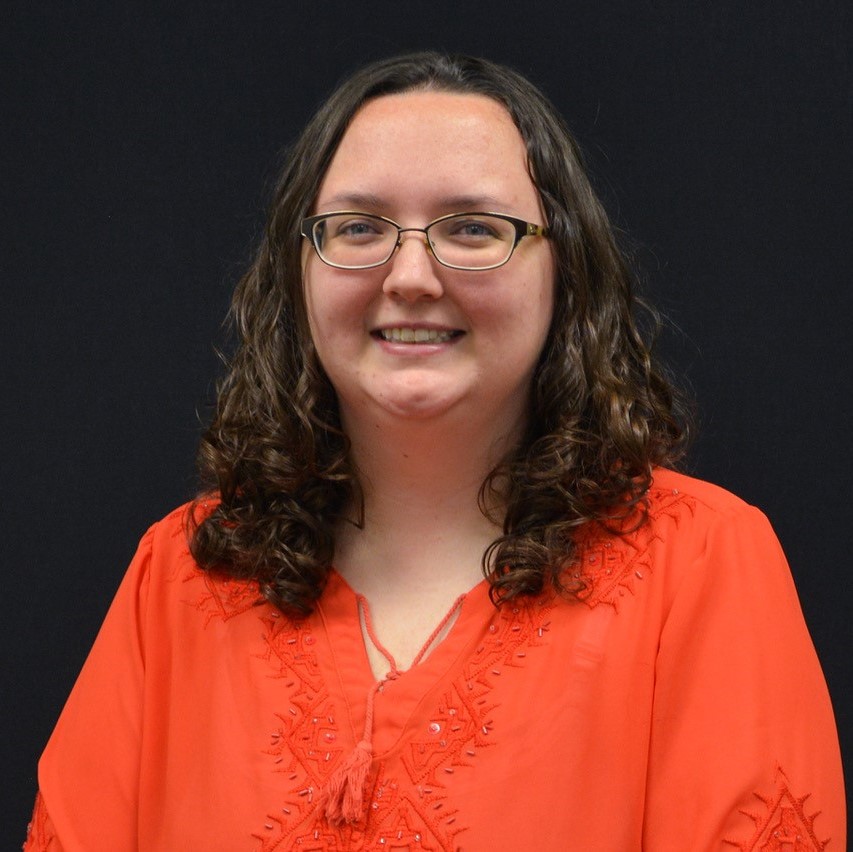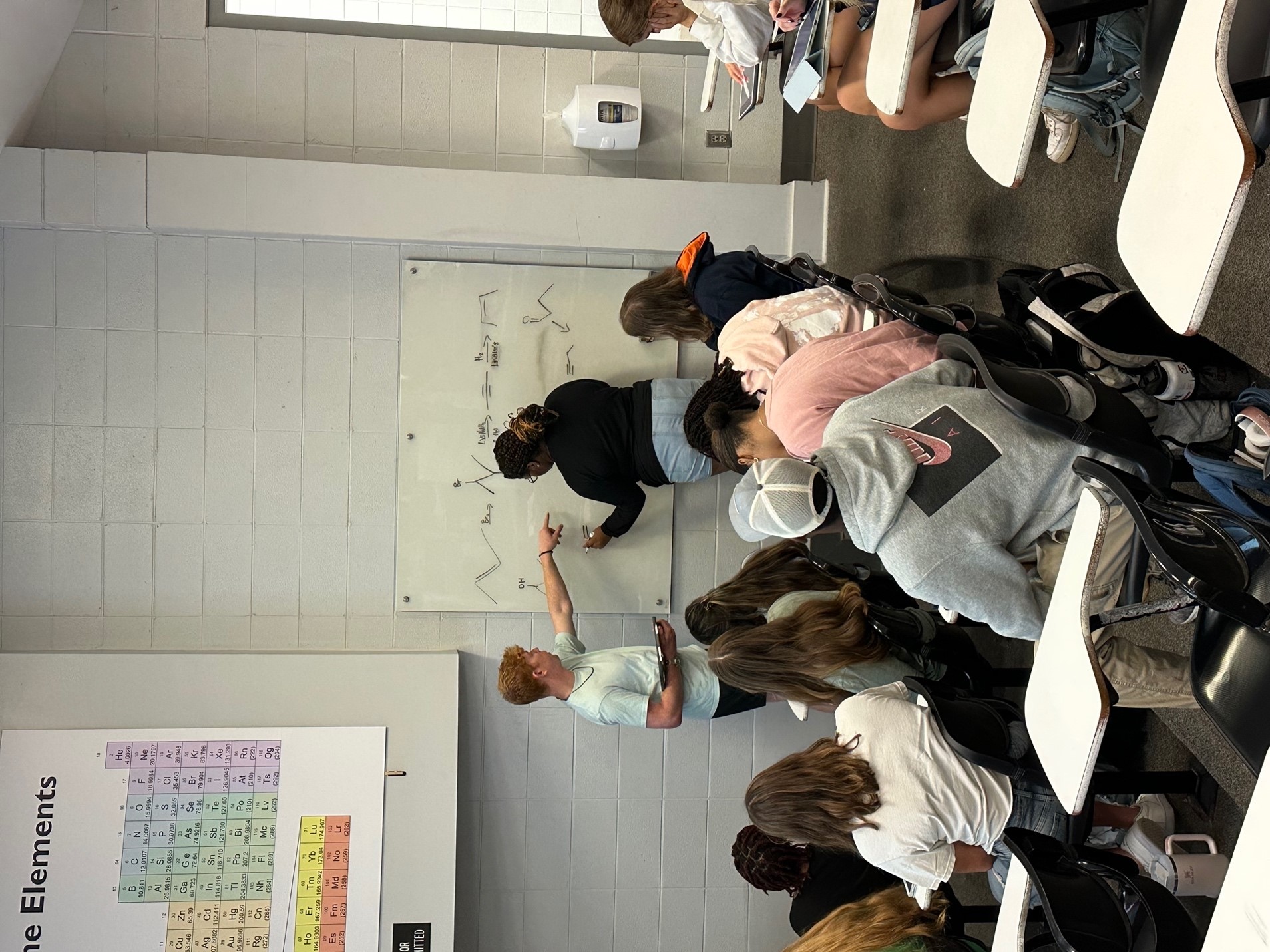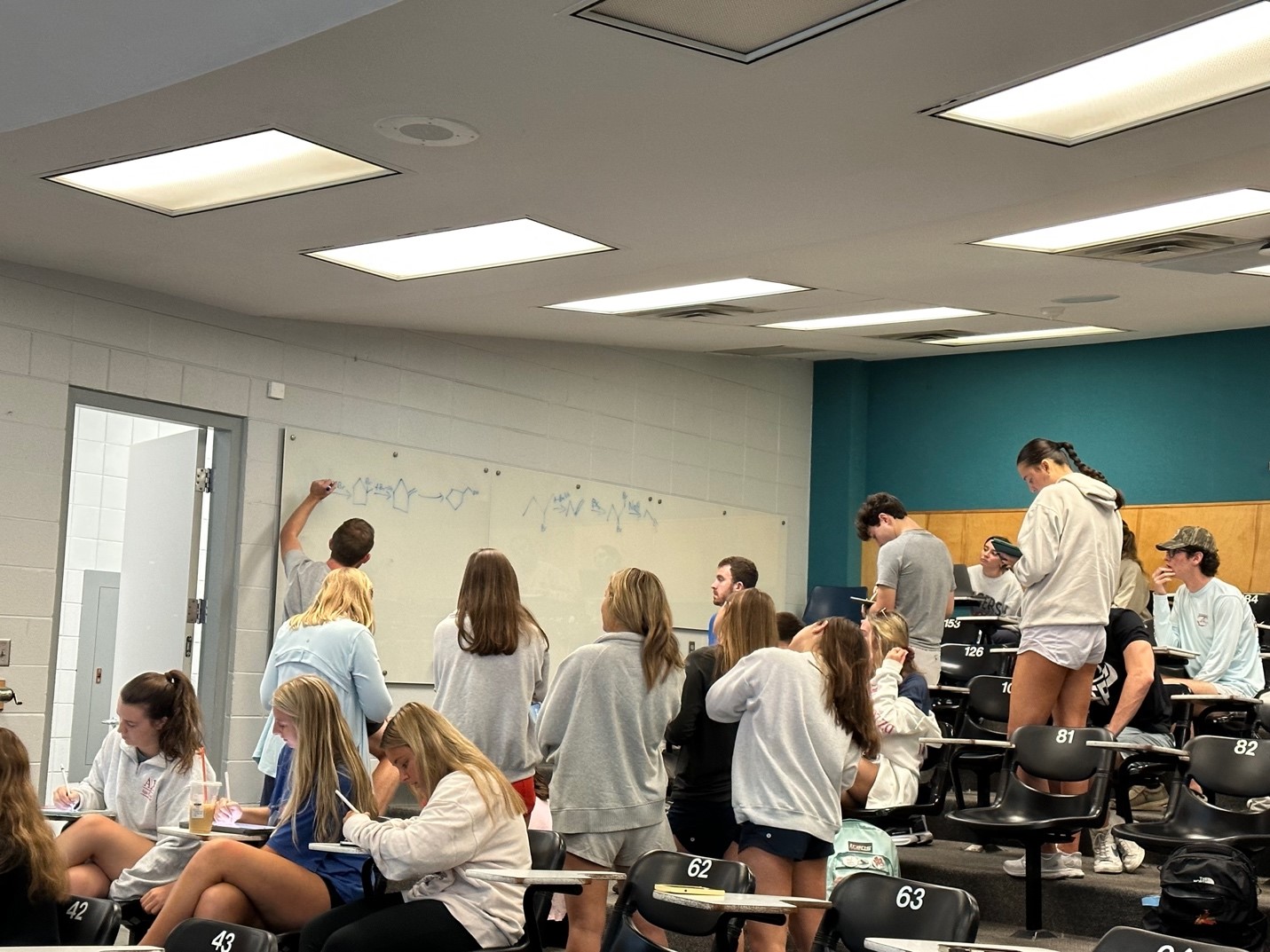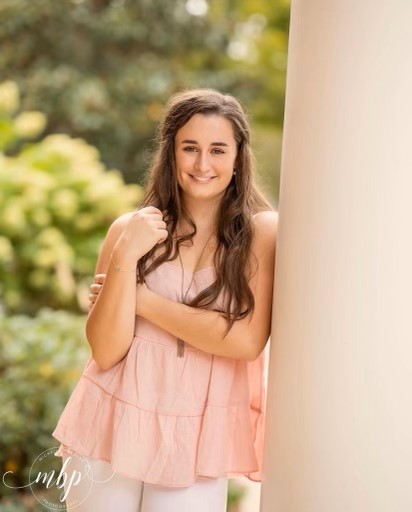Learning Assistant Program: November Newsletter
End of the semester wrap up:
As the Fall semester comes to an end, the AULAP wants to wish everyone a safe and happy holidays! A reminder also that the LA recruitment for the coming up Spring semester will be done by December 8th.
LA Faculty Spotlight: Dr. J. Rachel Prado
For our November Faculty of the Month feature, the AULAP is excited to feature Dr. Prado! Dr. Prado is a professor in the Department of Chemistry and Biochemistry, where she teaches various chemistry coures!
Dr. Prado started teaching as an undergraduate student at UAB in 2008, where she had a unique position called a Chemistry Fellow. She would teach undergraduate labs and recitation sections plus grade exams for faculty members. After completing her undergraduate degree, Dr. Prado taught all through graduate school and then completed a teaching postdoc at UCLA from 2017-2019. She then joined the Department of Chemistry and Biochemistry at Auburn in August of 2019. At UCLA she was one of the first in the department to use LAs and it was a big draw for her to choose to come to Auburn. Dr. Prado says, “I would not be able to teach to my fullest without the help of LAs. They are an incredible help to me and the students. Their passion and enthusiasm is contagious!”
When defining the classroom environment, Dr. Prado’s personal teaching style is student-centered and active learning. She says that, “In everything I do in and out of class I ask myself- what are students doing here? What questions would a student have?” The courses that she has taught numerous times, such as General Chemistry I and II (CHEM 1030 and CHEM 1040), as well as Organic Chemistry (CHEM 2070) are all flipped, meaning students watch a short lecture video before class and in class they work problems. It is in those problem-solving times in class where having the help of LAs is indispensable. During her time with the AULAP, she has taught for 4 years at Auburn and hired at least 43 LAs during this period. Many of her LAs have worked with her for multiple classes.
Dr. Prado utilizes her LAs by doing a short catch-up lecture in class where she points out the biggest challenges of the topics, before then posting problems on the slide. This is where the LAs and Dr. Prado circulate to help students with problems. LAs also hold office hours if they want. She typically has her LAs working between 3-6 hours per week. As an instructor, Dr. Prado says that “I would not be able to do my job as an instructor without them! I teach the large introductory courses of up to 300 students. If you look at the instructor to student ratio that is 1:300! With the LAs, this is brought down to 1:25! This is more manageable and every student has the opportunity to work one-on-one with someone. If an LA is stumped at the student question, they can call me over to help.”
One of the most significant benefits of having LAs in her class is that students are able to ask some who is knowledgeable but is more approachable. In addition, the LAs also share very useful tips on studying and how they personally understand a topic. When asked about how the AULAP supports student learning in her class, Dr. Prado said, “There is a theory in teaching and learning called expert blindness. Once you become an expert in something, you skip some steps in a task since you know them so well. An expert goes from A to D in one jump. A novice, which is most students, needs to know step A then step B then step B.1, B.2, B.3 then step C then step D. While LAs are knowledgeable, they are much closer to a novice level and will remember those intermediate steps. They help students learn by helping me, the expert, translate knowledge so that novices can more thoroughly learn a topic.”
She said that the feedback that her LAs give is always the best! Last spring, they were working synthesis problems in her Organic Chemistry course. An LA approached Dr. Prado and suggested for the students to work the problems on the board. She said that she was nervous about so many students going up to the board, but when it was implemented this fall, it went well!


LA of the Month: Kaitlyn Childress
The AULAP is excited to announce our November LA of the Month: Kaitlyn Childress! Kaitlyn is a junior majoring in biomedical sciences on the pre-dental track, and is an LA for Dr. Crisostomo’s Survey of Chemistry I (CHEM 1010). She hopes to attend dental school and become an orthodontist!
Kaitlyn was introduced to the AULAP as a freshman during her General Chemistry I class where she only had one LA in her class. She saw a flyer on campus about becoming an LA, and since she greatly enjoys chemistry, she decided to apply! She then went on to become an LA the next semester, and she has been a chemistry LA ever since her second semester freshman year!
Kaitlyn said that she has always enjoyed being an LA, and that is why she keeps coming back. She says that she enjoys doing it for flipped classrooms, which allows her to interact with the students more and she is able to be there to help them. Being an LA, Kaitlyn says, allows for her to help with the students with a unique approach given that she has taken the class herself. Since she has taken the class, she knows how to help the students and understands what they are going through, as she was once in that spot. Additionally, Kaitlyn said that she has enjoyed being an LA for Survey of Chemistry I, because this is a class for non-science majors, so it allows for her to meet and interact with new people who aren’t science majors like she is. In the classroom, Kaitlyn walks around and talks with the students asking if they need help with anything. Since it is a smaller class of about 30-40 people, she is able to interact with the students. While she isn’t assigned groups, often times the students will call her over to ask her questions.
She likes to approach questions by guiding the students and asking them what they are thinking. A lot of the questions she gets asked are about how to go about doing a certain problem, or students might be confused where to start, and she is able to point them in the right direction. Kaitlyn won’t give the students the answer, but instead asks them what they are thinking and their thought process, allowing them to work through it. She will also do active questioning where she will ask the students what they should do for the problem. Kaitlyn will then explain the concepts and relate stuff back to what they’re going over.
If there aren’t many questions being asked, Kaitlyn says that she will go around and initiate conversation and ask the students how they are doing and if there are any questions that they have. By initiating the conversation, the students tend to get more comfortable with approaching her and asking questions, therefore leading to more questions being asked. One of Kaitlyn’s rewarding students during her time as an LA is her first semester of being an LA she was hosting a mini review, and lots of people were worried about the exam. One student went up to her and told Kaitlyn how much the review meant to her and was very helpful. This made Kaitlyn realize that her work was helping people. The advice that Kaitlyn has for anyone interested in being an LA is that if they are really interested in it, pursue it, and if they enjoy it, do it as many semesters as they want to. She said, “try it for a semester and see how it goes. It is awesome being an LA because you are helping people, but you are also benefiting from it learning the material over again because it sticks in your memory.”
For additional information specific to departments, please contact the departmental LA coordinators.
Math and Statistics:
Heather Haskell: hgh0035@auburn.edu
Chemistry:
Rachel Prado: jrp0089@auburn.edu
Dave Crisostomo: dac0056@auburn.edu
Physics:
Daniel Merrill: dam0040@auburn.edu
Melissa Halford: mrh0091@auburn.edu
Geosciences:
John Fronimos: jaf0086@auburn.edu

